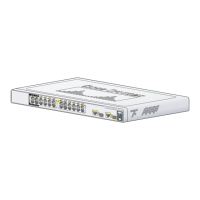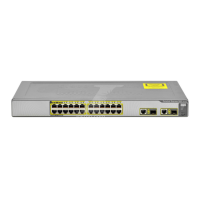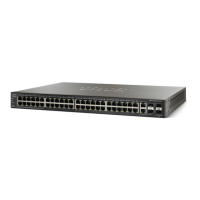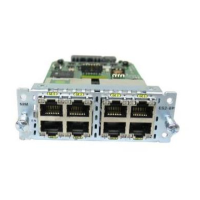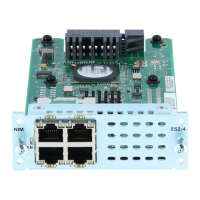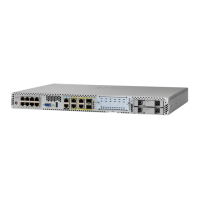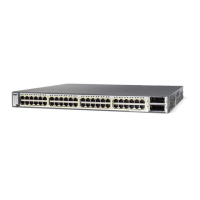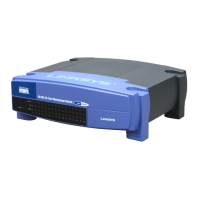Configuring Spanning Tree
Defining Spanning Tree Interface Settings
ESW 500 Series Switches Administration Guide 270
11
-
Designated
— The port or EtherChannel through which the designated
switch is attached to the LAN.
-
Alternate
— Provides an alternate path to the root switch from the root
interface.
-
Backup
— Provides a backup path to the designated port path toward
the Spanning Tree leaves. Backup ports occur only when two ports are
connected in a loop by a point-to-point link, or when a LAN has two or
more connections connected to a shared segment.
-
Disabled
— The port is not participating in the Spanning Tree.
• Path Cost — Indicates the port contribution to the root path cost. The path cost
is adjusted to a higher or lower value, and is used to forward traffic when a path
being rerouted.
• Priority — Priority value of the port. The priority value influences the port
choice when a bridge has two ports connected in a loop. The priority range is
between 0-240. The priority value is provided in increments of 16.
• Designated Bridge ID — Indicates the bridge priority and the MAC Address of
the designated bridge.
• Designated Port ID — Indicates the selected port’s priority and interface.
• Designated Cost — Indicates the cost of the port participating in the STP
topology. Ports with a lower cost are less likely to be blocked if STP detects
loops.
• Forward Transitions — Indicates the number of times the port has changed
from the Blocking state to Forwarding state.
• EtherChannel — Indicates the EtherChannel to which the port belongs. If a port
is a member of a EtherChannel, the EtherChannel settings override the port
settings.
STEP 2 Define the relevant fields.
STEP 3 Click Apply. STP is enabled on the interface, and the device is updated.
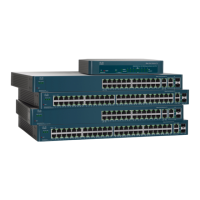
